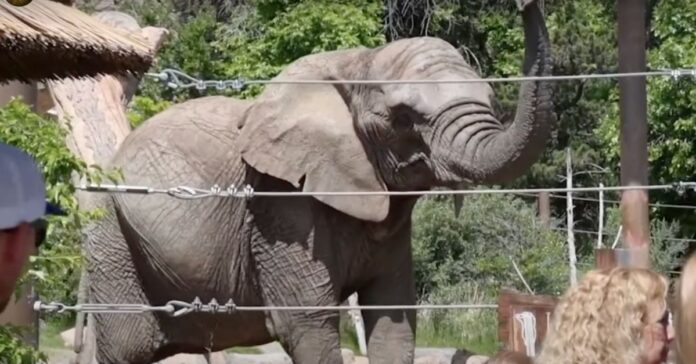Colorado’s top court made a big decision this week about five elephants living at the Cheyenne Mountain Zoo in Colorado Springs. The court ruled that these elephants—Missy, Kimba, Lucky, LouLou, and Jambo—don’t have the legal right to challenge their confinement using a habeas corpus petition. In simpler terms, the court said elephants, or any nonhuman animals, aren’t considered “persons” under the law, so they can’t ask for their freedom in court the way humans can.
This all started when an advocacy group called the Nonhuman Rights Project (NRP) filed a petition last year to move the elephants from the zoo to a sanctuary. The group argued that elephants are incredibly intelligent, social, and emotional animals, with complex needs that can’t be met in a zoo. They said keeping them confined like this is unfair and unnatural, causing them to suffer.
NRP used habeas corpus, a legal process meant to test whether someone’s imprisonment is lawful, as a way to argue their case. It’s a legal tool that was historically used to secure the freedom of enslaved people and transform their legal status from “property” to “person.” The group hoped to apply this same idea to elephants, claiming that their confinement at the zoo was unjust.
The Cheyenne Mountain Zoo, however, pushed back. They filed a motion to dismiss the petition, arguing that Colorado’s habeas corpus law only applies to people—not animals. The zoo also emphasized that the elephants were not mistreated and were being properly cared for. The lower court agreed with the zoo, saying the elephants didn’t have the legal standing to file such a claim.
NRP didn’t give up and appealed the decision, taking the case to the Colorado Supreme Court. On Tuesday, the state’s highest court sided with the zoo. In a 21-page ruling, Justice Maria Berkenkotter explained the court’s reasoning. While she acknowledged that elephants are incredibly intelligent and social beings—pointing out their self-awareness, empathy, and even their ability to grieve—the law in Colorado simply doesn’t recognize nonhuman animals as “persons.” Without that legal recognition, the elephants can’t use habeas corpus to challenge their confinement.
Interestingly, the court also pointed out that NRP wasn’t asking for the elephants to be set free into the wild. Instead, the group wanted them moved to a sanctuary—another form of confinement. The court noted that habeas corpus is typically used for cases where someone is seeking complete freedom, not just a transfer from one place to another.
In the end, the Colorado Supreme Court said this isn’t an issue for the courts to decide. If there’s going to be greater legal protection for animals like Missy, Kimba, Lucky, LouLou, and Jambo, it will have to come from lawmakers, not judges.
NRP responded to the decision by calling it a clear injustice. They remain hopeful that, in the future, courts will begin to recognize that animals deserve some of the same rights as humans. They compared this fight to other social justice movements, saying that early setbacks are part of challenging deeply rooted systems.
For now, the elephants will stay at the Cheyenne Mountain Zoo, but the debate over animal rights—and whether intelligent animals like elephants should be treated more like humans under the law—is far from over.





